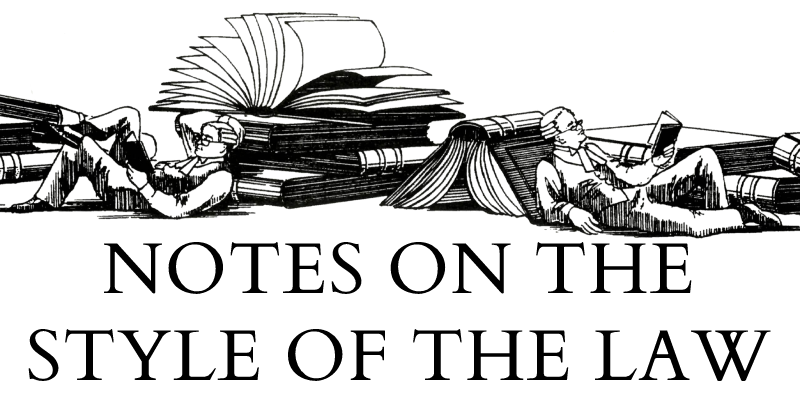

The place of women in the judiciary of England & Wales had a historic moment with the installation this week of Dame Sue Carr DBE as Lady Chief Justice. Her Ladyship is to be given a peerage but this has yet to be announced in the Gazette. Although the numbers of women judges continue to be below parity, the signs indicate that we are at least making progress in this regard. One minor stylistic issue, however, continues as a result of judicial titles. Historically, the post-nominal letter J was simple to pronounce: it expanded to ‘Mr Justice’ said before the name. With women in the judiciary, it was quite right that the system did not abolish the honorific before the title; there is a dismal and sexist trend to abolish titles of honour just when women are finally allowed to have them (after centuries of being refused on the grounds of sex).
However, this created the problem that J now has at least two variant pronunciations, the other being ‘Mrs Justice’. I say ‘at least’, because, quite rightly, Russell J chafed at using ‘Mrs’ and won, after some pushing, for the right to be ‘Ms Justice Russell. Logically, the solution is to do as is done in parts of Canada and elsewhere in the Commonwealth, and use the marriage-neutral appellation ‘Madam Justice’. This ought to have been done years ago
However, even provided that the marital distinction were abolished, this still leaves two variant pronunciations. This can be challenging when coming across judicial names, for even experienced practitioners will not have to hand a memorised list of the full names of every judge of the High Court and Court of Appeal, let alone all the former judges since women became senior judges. This makes it impossible, without research, to know how to say certain names, a problem exacerbated by the fact that names can very nearly overlap in swapped genders. A male Rose LJ and a female Rose LJ have been on the Bench in the past 30 years!
It is to this problem (gender variance) to which Andrew Baker J has brought, in a recent case, Kallakis v Kallakis [2023] EWHC 2148, Comm an excellent solution, which I am delighted to report is nearly identical to one I have previously informally suggested. On first reference to women judges, Andrew Baker J gives judges name followed J, but then adds the DBE which our Sovereign by custom confers on all female senior judges. Thus, His Lordship writes of ‘Moulder J, DBE’ ibid, para 3 and ‘Dias J, DBE’. ibid, para 6(v)
This is a superb way to provide an aide to the advocate, teacher, or any other reader in how to pronounce the name. It distinguishes pronunciation without drawing undue attention to gender, and does so by quite properly highlighting the dignity which our Sovereign was graciously pleased to confer upon the judge. There can surely be no objection to acknowledging the precedence and distinction which accompanies any Dame of such a Most Excellent Order. Albeit one which, I think, ought really to be renamed in honour of Her late Majesty as an elegant way to end the unfortunate alienation the present of the Order creates. ‘The Most Excellent Order of the Blessed Elizabeth’ has a wonderful ring to it. This, however, is a tangent, and so I confine it to this footnote. Andrew Baker J is to be praised lavishly for finding such a solution.
The mere implementation of this solution would be more than sufficient to solve the problem, but I am minded to perfectionism, and so add a few remarks for reflection on potential improvement. These are merely my initial thoughts, and I welcome any comment or criticism, as ever, whether here or by e-mail. A point for consideration is whether the postnominals ‘Kt’ ought to be added to the names of male judges when abbreviated. I suggest this point not because I fear for the dignity of male judges, but rather because I desire to do everything possible to avoid the appearance, for lay readers, that the DBE after the J is in some way a qualification of one’s status as a judge (the way in other countries, ‘Ag’ is added after J to indicate a judge is merely acting). This is probably paranoia on my part, but taking positive steps to dissuade irrational sexist inferences may be a necessary caution in any matter of legal style touching on gender. It is for the same reason that I have long felt that male judges ought to get a KBE or conversely a bachelor Some might thing this ought to be ‘bachelorette’, but given women regularly earn, in higher numbers than men, the degree of Bachelor of Arts, it is absurd to suggest a woman cannot hold a bachelor rank. award of damehood be created for female judges, simply to avoid the risk of confusion due to the differences in post-nominals. The KBE would allow the minimum difference, but given such change is unlikely, adding the existing ‘Kt’ post-nominal which all male judges hold may help dissuade those foul inferences.
In any case, this is a day on which to fulsomely praise Andrew Baker J for such a magnificent solution to a longstanding problem. It is most serendipitous that this occurred in the very same judgment wherein His Lordship took a reprobate with a history of two crimes I find supremely repugnant–creating fraudulent heraldic honours and impersonating Lord Denning–so thoroughly to (well deserved) task. ibid, paras 30–31 It meant that this was the rare case where I could applaud both the substance and the style with equal vigour. Huzzah, huzzah, huzzah for Andrew Baker J!

© , Elijah Granet, but licensed to all under the terms of Creative Commons licence CC-BY-SA 4.0
Published by

GRANET PRESS
LIMITED


Comments
Post a Comment
Contributions are always welcome!